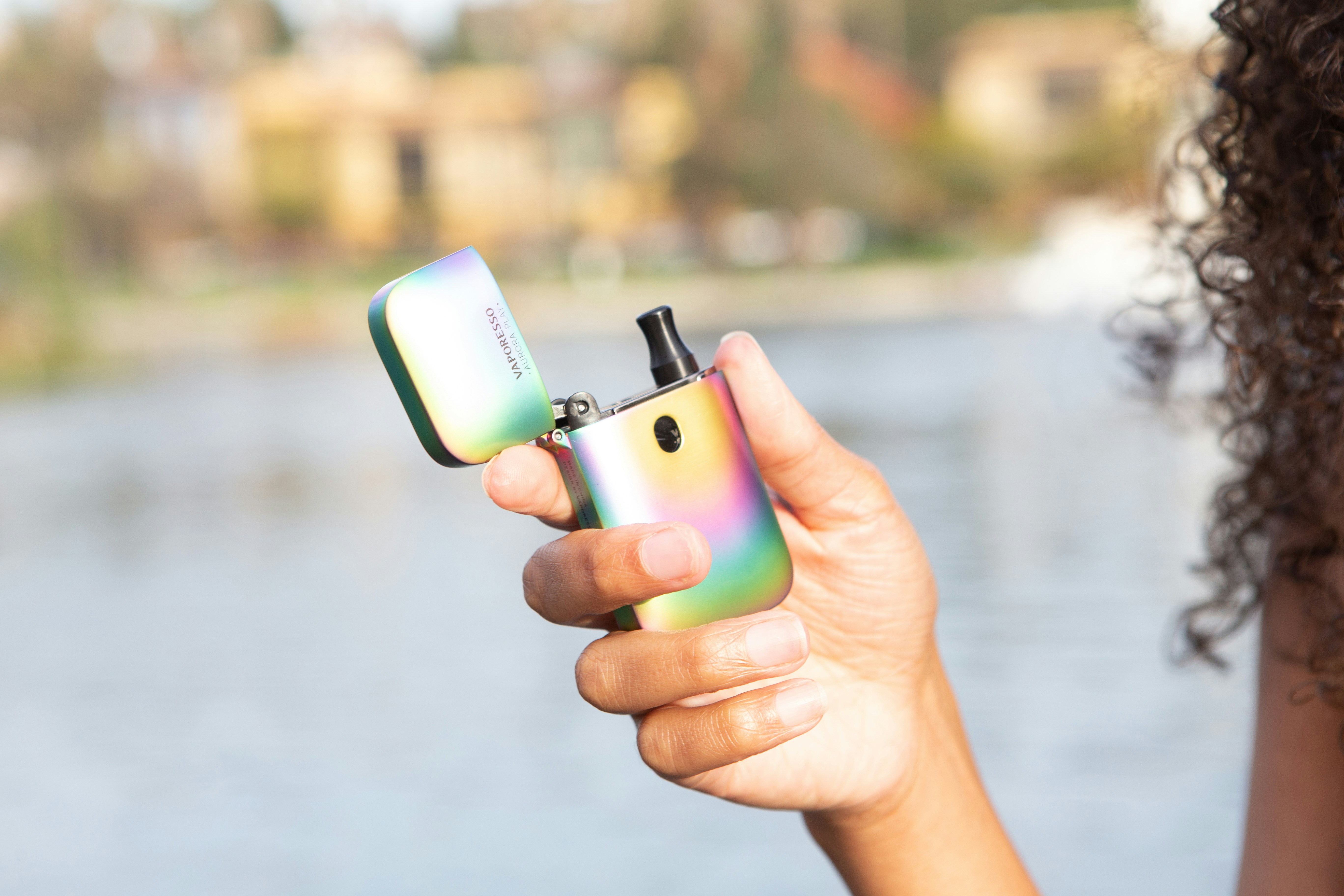Whether you’re a cigarette smoker looking for a healthier alternative, or you are a current electronic cigarette user, you may be wondering what is and isn’t true about e-cigarettes. Are they the key to quitting smoking, or are they as dangerous as some news headlines claim?
Why Do People Use Electronic Cigarettes?
Electronic cigarettes, also known as e-cigarettes, e-cigs, or vapes, are battery-powered devices that people use to heat liquid into a vapor that can be inhaled. These gadgets come in different shapes and sizes; some have refillable tanks or cartridges while others can only be used once. The “e-liquid” typically contains nicotine, the highly addictive substance found in regular cigarettes and other tobacco products. In addition to nicotine, these gadgets can contain other potentially harmful substances such as propylene glycol, flavorings, and various chemicals. Below are some of the reasons more and more people are using e-cigarettes:
- Safety perception: Many people, especially young teens, believe e-cigarettes are a safer alternative to traditional tobacco products. Some think that by using these devices, they can satisfy their nicotine cravings without exposing themselves to the harmful chemicals and toxins found in regular cigarettes.
- Quitting traditional cigarettes: An analysis of 61 studies found that e-cigarette use was more effective than other approaches to quitting smoking. However, the FDA has not approved e-cigarettes as a quit-smoking aid, and more research is needed on their health effects.
- Marketing: E-cig companies employed aggressive marketing and advertising strategies that involved eye-catching ads and appealing promotional tactics. One study found that low-risk young adults who currently do not use nicotine or tobacco products are more likely to respond favorably to advertisements depicting their peer crowd and increasing their susceptibility to begin using e-cigarettes.
- Flavors: From mint to mango to cotton candy, electronic cigarettes come in a wide range of fruity and sweet flavors which are more appealing and palatable than the taste of traditional cigarettes.
- Convenience: The convenience and portability of e-cigarettes also play a role in their usage, as they can be discreetly carried and used in various settings.
The Surge in Use Among Adolescents
Over 1 in 10 young adults in the United States regularly use e-cigarettes, according to a new report from the US Centers for Disease Control and Prevention. Young adults, between the ages of 18 and 24, used e-cigarettes the most, with 11 percent indicating that they actively consumed the products. While cigarette use has fallen to a record low, e-cigarette use climbed, likely due to more brands entering the market.
Popular e-cigarette brands, like Juul Lab, have attracted many users due to their products’ sleek design and ability to deliver high amounts of addictive nicotine into the bloodstream. Studies have found that Juuls impair blood vessel function nearly as much as cigarette smoke. In a move to curb teen vape use, the FDA banned the sale of flavored e-cigarettes in 2020. The ban applies to specific cartridges or pre-filled pod devices but still left flavored tobacco products and disposable nicotine vapes on the shelves of gas stations and smoke shops.
The good news is that sales of pre-filled e-cigarette devices decreased from 75 percent to 48 percent between 2020 and 2022. However, sales of disposable e-cigarettes climbed from around 25 percent to 51 percent. Some of the top-selling brands included Vuse, Juul, Elf Bar, NJOY, and Breeze Smoke. Companies are navigating around the FDA ban by introducing fruity, sweet disposable e-cigarettes with higher nicotine content at lower costs, appealing to teens everywhere.
Originally, electronic cigarettes such as Juul were marketed as tools to help people break their cigarette habit. However, new evidence suggests that e-cigarettes are just as harmful as regular cigarettes and can cause irreversible lung damage and lung cancer.
Why is Nicotine Dangerous?
Nicotine stimulates the release of dopamine, a neurotransmitter associated with pleasure and reward, creating a sense of temporary satisfaction. However, over time, nicotine use leads to addiction, making it extremely difficult for individuals to quit. Furthermore, nicotine has detrimental effects on the cardiovascular system, increasing the risk of heart disease, stroke, and high blood pressure. It also negatively impacts lung function, contributing to respiratory problems such as chronic bronchitis and emphysema.
Additionally, nicotine’s effect on the brain — which doesn’t reach maturity until 25 — is severe, and can reduce cognitive activity, alter mood, and affect memory and concentration. Nicotine’s addictive power impacts everyone, regardless of age. According to the Federal Drug Administration (FDA), nicotine is as addictive as cocaine and heroin. Nicotine has also been linked to other health issues like ulcers, erectile dysfunction, premature birth, and sudden infant death syndrome.
In August 2023, Truth Initiative revealed that the increasing size and strength of disposable e-cigarettes have resulted in a generation of products with nicotine levels comparable to several cartons of cigarettes. As brands race to strengthen their product’s nicotine concentration, this leads to a greater risk of addiction, lower motivation to quit, and amplified symptoms of anxiety and depression.
What Other Ingredients Are Found in E-Cigarettes?
There is a common misconception, particularly among teens, that Juul and other brands of e-cigarettes contain nothing more than water vapor, nicotine, and flavoring. But according to the Centers for Disease Control and Prevention (CDC), this “harmless water vapor” often contains dangerous substances, such as ultrafine particles that can be inhaled deep into the lungs, heavy metals, volatile organic compounds, and cancer-causing chemicals. One common ingredient, diacetyl, is a chemical linked to a disease known as “popcorn lung” which scars the tiny air sacs in the lungs resulting in the thickening and narrowing of the airways.
These chemicals vary depending on the e-cigarette brand, and in some cases, flavor. And vapes often have incomplete or misleading labeling, making it hard to know what is actually in them.
Unfortunately, vaping hasn’t been around long enough for medical data and studies to determine the long-term health effects of e-cigarettes. However, countless doctors, health officials, and state health departments have urged individuals to stop vaping.
Vapes vs. Cigarettes: Which is better?
So, the question you may be wondering after all this is whether vapes or cigarettes are the safer option. Many people believe that e-cigs are a healthier alternative to cigarettes because they do not contain tobacco, a dangerous carcinogen. And while this is correct, most vape pods do contain nicotine, which is highly addictive and can affect brain development. In fact, one Juul pod contains just as much nicotine as one pack of cigarettes.
Given the limited body of evidence, the American Heart Association and FDA do not recommend e-cigarettes as a tool to quit smoking, they said in the statement. Other experts say that if cognitive behavioral therapy and nicotine replacement therapy don’t benefit smokers, then e-cigarettes might. But when it comes down to the two, neither is safe.
If you are concerned about your smoking habits, there are ways to limit or quit consumption. An effective plan to quit smoking e-cigarettes or traditional cigarettes looks like:
- Identifying your triggers
- Developing healthy coping mechanisms
- Setting a realistic timeline to quit
- Letting people close to you know you are quitting
- Taking setbacks and accomplishments as they come
So, if you’ve never smoked or vaped before, don’t start. If you’re an adult cigarette smoker looking for an alternative, consider quitting instead. While vaping seems like a “safer” alternative to cigarettes, both are dangerous to your health. If you’re unsure how to quit smoking, click here or visit smokefree.gov for tips and support.
If you or a loved one is struggling with addiction, Mountainside can help.
Click here or call (888) 833-4676 to speak with one of our addiction treatment experts.

 By
By 





